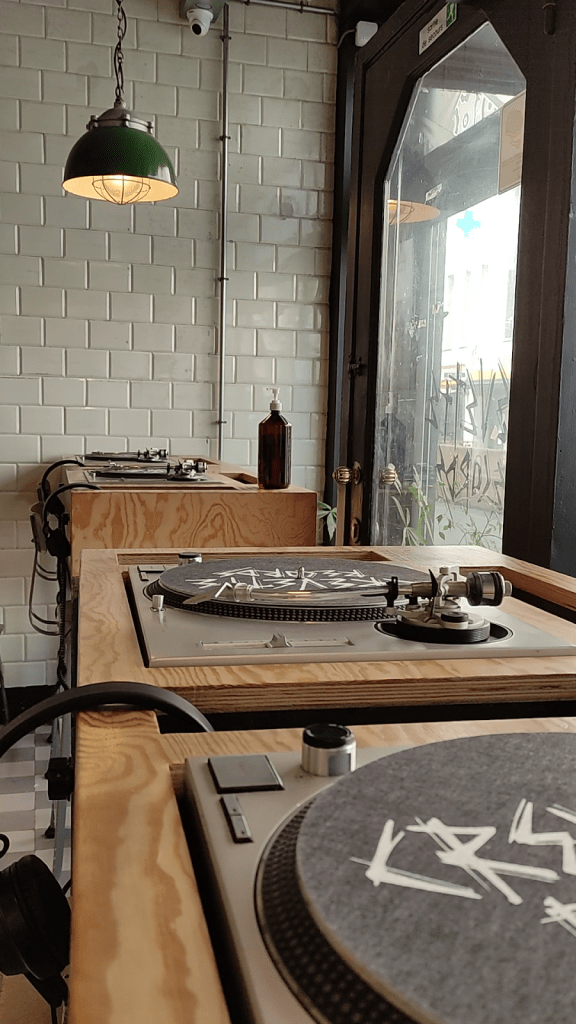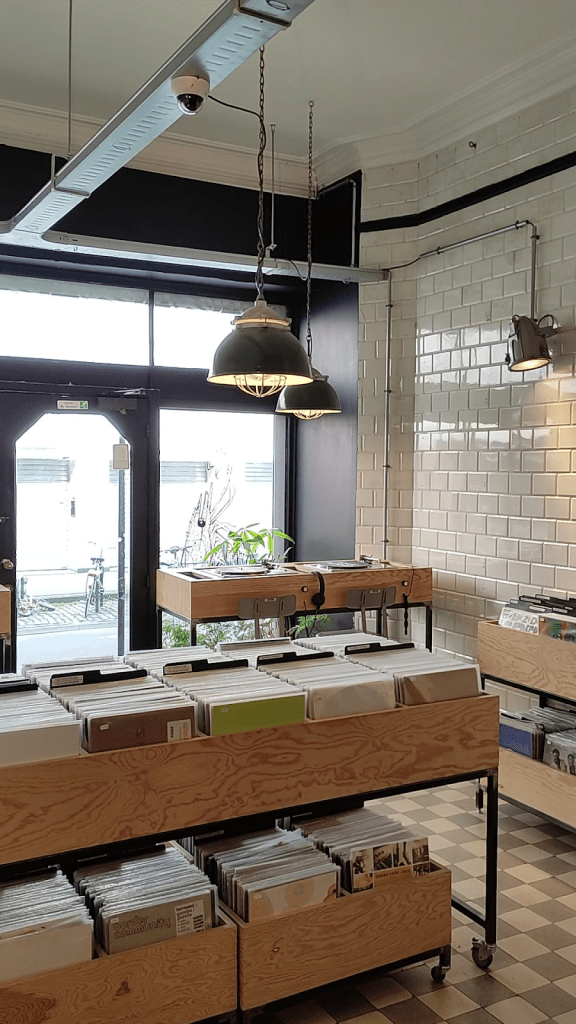Futurgrooves and The Void Project team honors its collaborators and the artists that allow the label to grow. Today, we are catching up with Pim and Jakob from Crevette Records, The Void Project’s official distributor in Belgium and elsewhere. Focusing on the Brussels record shop of excellent electronic music: Crevette Records.
Who is Crevette Records?
To begin with, Crevette Records is a fascinating duo, who decided to create a place dedicated to electronic music that did not yet exist in Brussels. In 2016, Pim hadn’t found his musical pleasure in the capital. He then decides to launch the adventure of Crevette Records, by proposing a record shop axed on electronic music. Later on, Jakob joins him to develop the distribution side of Crevette Records. In only 5 years, Crevette Records has imposed itself as an unmissable place of underground electronic music in the Belgian capital.

What is Crevette Records?
Crevette Records is mainly a vinyl record shop, but not only! Crevette Records’ project has, in reality, many roles in the music sector: label, records store and distributor. A true showcase of the Brussels scenery, Crevette Records is the link between the capital’s artists and the world’s record stores. Actually, Crevette Records’ power is to create a link between professionals and the particulars, on a local scale, but also on an international scale. The record shop offers a meeting place, where the passionates can meet, share, and discover music. “We call it a record shop, but in reality the ‘shop’ part is only a small part of Crevette Records. The social function is very important”, Pim explains.
Where is Crevette Records?
If you walk through the emblematic Marolles neighborhood, it would be impossible to miss the green glass and the pink shrimp of the record shop, drawn by Lea Nahon, artist and tattoo artist. “We chose Marolles, because it is a place that I love, and then when I visited the shop, I knew it was the right one!”, Pim explains. “A good thing about the Marolles neighborhood is that everything is open on Sundays and closed on Mondays, which is very cool for DJs”, Jakob adds.



Walking into the record store, Crevette’s team will welcome you (of course) with music, in an intimate atmosphere, intertwining nature’s green and industrial decoration. With its 4 listening stations, the shop is really well-thought to find and listen to your future favorite tracks. It’s actually a well-known craftsman known in the Brussels electronic scenery who was in charge of the shop’s layout: Clauset & Dekeyser.
Crevette Records : why? For who?
Crevette Records addresses everyone with axed electronic music propositions, but also disco, original African music, jazz, soul, and hip-hop. With over 10,000 disks, Crevette Records addresses itself to a diverse clientele with one thing in common: the love for music. “Our clientele is as diverse as our disks”, Pim explains. “Actually, our shop is axed on electronic music in the widest way, we don’t only offer dance music, we offer music that you can listen to anytime”, Jakob adds. Crevette Records started with DJs as its first customer base, but finally imposed itself as a meeting place for collectors, as well as the first starters. “We see children, seniors, DJs, tourists… we see ages from 5 to 75!”, Jakob details. “And it’s actually better than to have only a certain profile that comes into the shop”, Pim adds.
Crevette Records also supports the local and international underground scenery, by proposing disks that have just come out of pressing. Crevette Records is then more than a record shop, by proposing TO DISTRIBUTE disks, such as The Void Project , Basic Moves and the last EPs of Hoot’s label and the Warning Records’ last EP.
Crevette Records : new projects to come?
For almost a year now, Pim and Jakob have been planning the expansion of their distribution network and have decided to support almost 10 additional local labels. New things are planned for the webshop as well, but they won’t tell us anything more and make us wait for the surprise. “We have worked on a lot of things that, we hope, will be seen soon”, Pim concludes.
Crevette Records : the feedback
The Void Project and Crevette Records are initially tied by a collaboration that isn’t ready to stop anytime soon. Professionalism, trust, and common passion, The Void Project has been able to cross borders, thanks to Pim’s and Jakob’s amazing work. VP004 will soon be in the record shop’s cases, and we hope it will soon be available worldwide thanks to The Void Project’s official distributor: Crevette Records.











